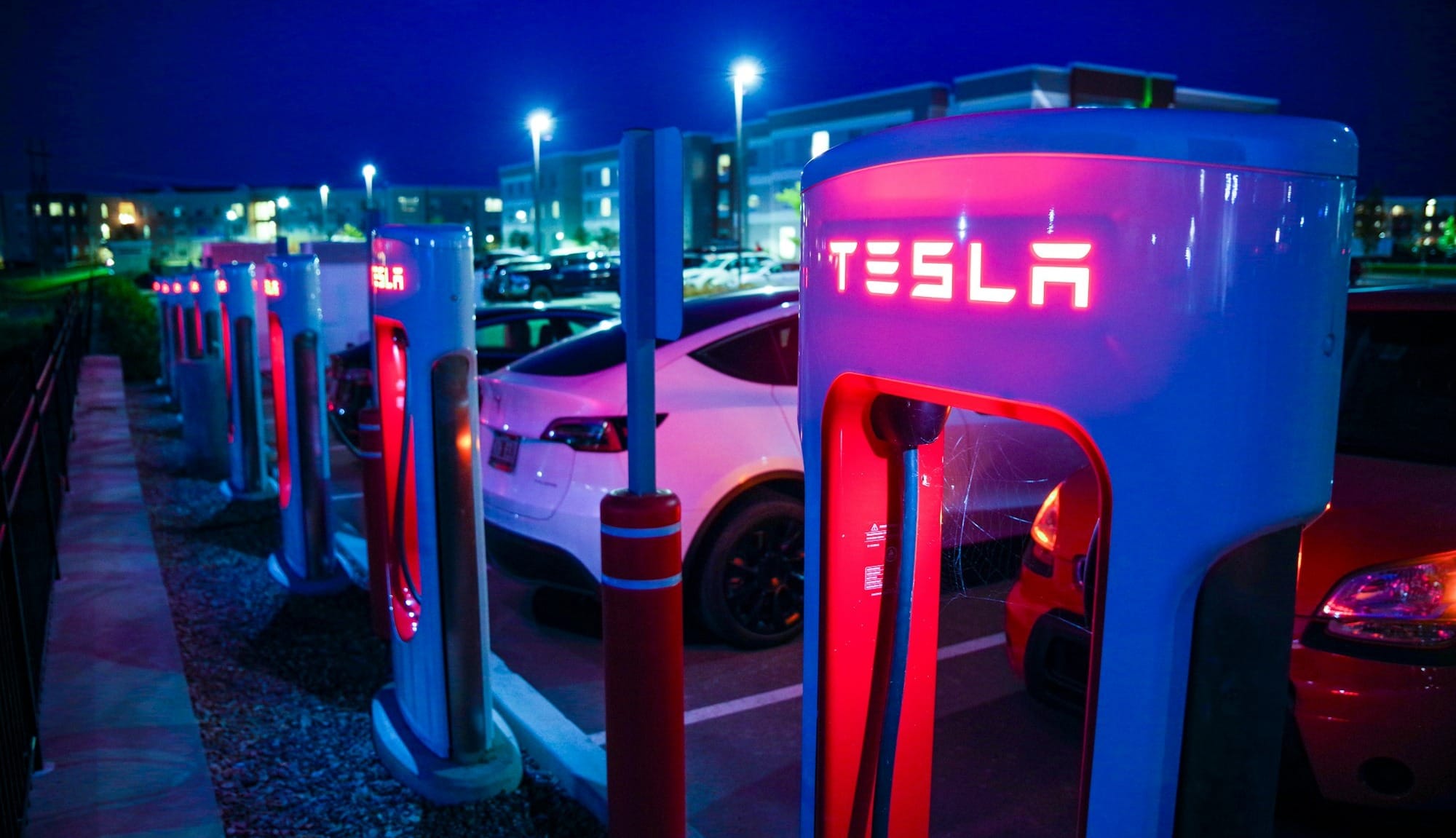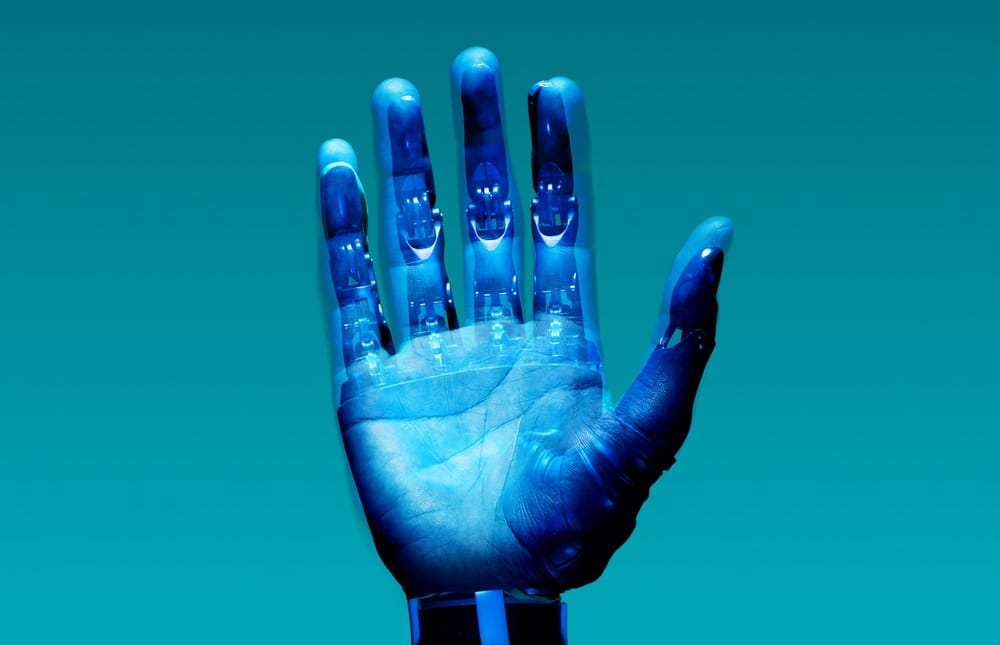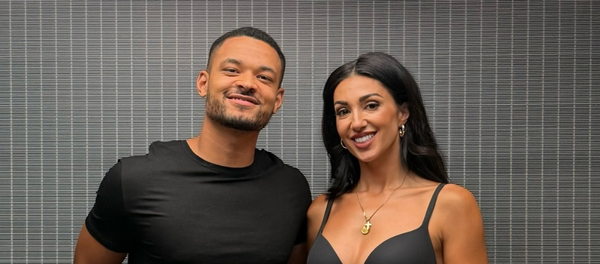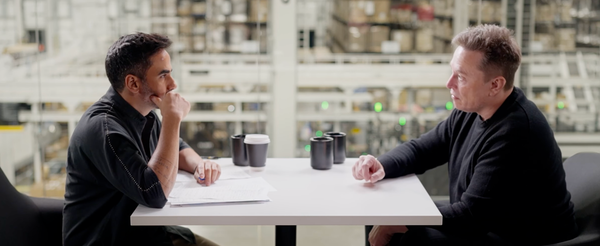Cathie Wood - how to invest in the future
Note - we're writing this post in 2025. I am curious to see what will be the world like in 2035 - if we do survive until then.
You know you’ve hit cult status when CNBC stops mocking you and starts quoting you. That’s Cathie Wood. The high priestess of disruption.
The woman who built a $300 billion investment empire around a single idea — that technology, like God, always delivers salvation… eventually.
Cathie Wood built an empire on one simple thesis: technology will change everything — so bet on it loudly, early, and with conviction. She founded ARK Invest and launched the ARK Innovation ETF (ARKK) on October 31, 2014 as a vehicle to do exactly that: pour concentrated money into what she calls “disruptive innovation” across AI, robotics, energy storage, blockchain, and genomics. It’s an actively managed ETF with a clear mission — not to be boring, but to own the future. It bets, hard. On the things most people think are still science fiction: humanoid robots, DNA sequencing, electric air taxis, and, of course, the digital messiah itself — Bitcoin.
If you’ve watched ARKK from the sidelines you know the beat: a meteoric rise, a painful crash, slow rebuilds, and endless debate about whether this is visionary investing or just expensive fanaticism. My aim here is to tell that story straight: who Cathie is, what ARKK actually did since 2014, where it killed it (hello Tesla and Coinbase), where it cratered (Teladoc, Roku), and why the fund’s roller-coaster matters to normal people who don’t live in trading dashboards.
When you listen to her talk, you almost believe it too.
The Gospel According to Cathie
Cathie Wood isn’t a Wall Street suit in the boring sense. She’s a former ally of the bulls and bears, an analyst-turned-fund-manager who built ARK Invest to be deliberately different: thematic, concentrated, and unapologetically long-term. ARK’s marketing reads like a manifesto: identify large structural shifts and invest in the companies that will shape them. That conviction, not diversification, is the engine.
That engine made ARKK famous in 2020–2021. ARK’s bet-sizing and publicity (Twitter threads, research notes, founder charisma) made it magnetic for retail traders and institutions who smelled the upside and wanted in.
Short story: ARKK’s ride has been extreme.
- ARKK launched in late 2014 and became a household name after crushing it during the pandemic tech rally — peaking in early 2021.
- After that peak it suffered a brutal drawdown. By some accounts the fund fell roughly 48% from its Feb 2021 record high during the 2021–2022 rotation away from high-growth tech. Reuters reported the fund went from top-performer to among the worst in short order.
- Over the longer window, different sources compute different metrics: ARKK’s long-term annualized returns (depending on the timeframe) look attractive — the fund has periods with strong CAGR numbers — but investor experience is messy. A key critique is that the fund’s performance and the typical investor’s returns diverged dramatically because retail investors bought near peaks and suffered the drawdown; Barron’s and others documented this gap and flagged the timing problem for ARKK retail holders.
- Risk metrics are real — high volatility, wide drawdowns (one source flagged a max drawdown north of 70% from peak to trough depending on how you measure), and a standard deviation far above broad indexes. You don’t treat ARKK like a sleepy index fund; you strap in and tolerate turbulence.
Translation for people who don’t love charts: ARKK could make you rich if you buy early and hold through the insanity — or make you broke if you buy at the wrong moment and panic out. The fund doesn’t attempt to be everyone’s portfolio; it attempts to be a levered theme.
Cathie Wood preaches five big commandments of the coming techno-revolution:
- Robotics
- Energy Storage
- Artificial Intelligence
- Blockchain
- Multiomic Sequencing (a fancy way of saying “we’ll edit life itself”)
She calls them “innovation platforms.”
I call them the five horsemen of the profit apocalypse.

According to her, these aren’t separate trends — they’re converging. AI will design better robots. Robots will build better batteries. Batteries will power more efficient labs. Labs will sequence DNA faster. And somewhere in that chain, someone will make an ungodly amount of money.
That’s the dream. The narrative. The vision that ARK Invest sells — not just to investors, but to anyone who still believes capitalism can save us.
The Apple of Our Eye (And Why It’s Ripe for Disruption)
Cathie doesn’t care for Apple — at least not as an investment. She calls it “a cash cow.” And she’s right. Apple has become what IBM once was: safe, predictable, boring.
She thinks the next “ultimate mobile device” won’t be a phone at all, but an autonomous car — a vehicle that moves your body the way your phone moves your mind. She expected Apple to be all over it. But Apple flopped, lost talent, lost time, and now the road belongs to Tesla.
I get it. She’s basically saying: stop betting on the cow, start betting on the meteor.
The Case for Tesla, or Why Elon Musk Might Be the Thomas Edison of Our Time
Cathie’s biggest love story isn’t with AI or crypto — it’s with Elon Musk.
To her, Tesla isn’t a car company. It’s a living, breathing organism powered by data. It’s the biggest AI company in the world, because it’s not just building cars — it’s building the brains that will drive every car, every robot, every humanoid worker that threads needles better than you ever could.
The market, she says, is missing the point. The real trillion-dollar play isn’t selling cars — it’s selling time. Autonomous driving turns your commute into productivity, your car into an assistant, your Tesla into a robotaxi army.
It’s not crazy. It’s capitalism’s purest fantasy: earn while you sleep, automate the grind, monetize existence.
Cathie believes this so strongly that her ARK portfolio keeps doubling down, while everyone else clings to “safe” bets like Apple, Coca-Cola, and “whatever Warren Buffett likes this week.”
Don’t discount the obvious winners. The biggest reason ARKK looked like a genius bet at certain points was its concentration in a small number of monster winners — most notably Tesla. Tesla was frequently ARKK’s top holding and at times made up double-digit percentages of the fund, magnifying ARKK’s gains when TSLA ran. Yahoo/MarketWatch snapshots consistently list Tesla near the top of ARKK’s holdings.

Other hits: Coinbase and a handful of fintech and platform plays surged massively at points, propelling ARKK’s returns in years when the market favored growth over stability. These were the moments when the ARK narrative — “own the platform that enables the future” — felt not just plausible but obvious.
What Cathie’s team did well was identifying convergence: robotics + energy storage + AI + blockchain + genomics. When these ideas feed on each other, the winners can become absurdly large. ARKK’s allocations to those concepts gave it optionality: if one theme blew up, the portfolio benefited disproportionately.
For every Tesla winner, ARKK had painful misfires. Teladoc is one of the clearest cautionary tales. Telehealth soared during the pandemic as demand for remote care exploded; Teladoc’s stock ran to stupendous valuations and became a COVID-era darling. But the post-pandemic reality — slower-than-expected growth, integration headaches (BetterHelp acquisition fallout), heavy marketing costs — sent it into a long decline. Teladoc’s slide from pandemic highs into deep losses is well-documented. ARK had material exposure at times, and the fallout hurt performance.
Roku plays a similar role as a high-conviction ARK name that experienced dramatic volatility. It was part of ARKK’s high-conviction growth bets and, when sentiment shifted in the bear market, Roku’s price plunged hard — dragging down portfolios that owned it at scale. The same dynamic hit many high-growth media and platform stocks: rapid ascend, then harsh re-rating as markets demanded profits or macro conditions turned.
The reality is brutal but simple: high conviction + concentration = high upside and catastrophic downside. ARKK’s structure magnifies both.
Bitcoin: The New Religion of Value
Here’s where Cathie goes full prophet. In her world, Bitcoin isn’t just an asset — it’s the resurrection of financial truth.
Since the U.S. closed the gold window in 1971, she says, the world’s been waiting for something that could act as both store of value and medium of exchange. Bitcoin, she argues, is that thing.
Her fund bought in at $250. It’s now worth over $140,000. And she still hasn’t sold.
Why? Because she thinks Bitcoin will hit $1.5 million by 2030.

You can scoff — and you should — but you can’t ignore the logic. There are only 21 million bitcoins that will ever exist. We’re already at 20 million. The final 1 million will take decades to mine. Scarcity, meet faith.
Bitcoin, she says, hasn’t been hacked since 2009.
Cathie sounds less like an investor and more like a theologian: “And the blockchain was incorruptible, and the code was eternal.”
Here’s a point that gets underappreciated if you skim newsletters: ARKK’s paper performance and investor returns diverged. That’s not a small footnote. Many investors piled in when ARKK was at or near its peak, driven by FOMO and media hype; getting in after the run and then seeing a 50–70% drawdown is traumatic. Barron’s and others covered this reality — investors who bought at the miracle top had terrible realized returns even if the fund’s long-term arithmetic eventually recovered.
That’s a practical lesson in behavioral finance: conviction matters only if you can actually hold conviction through the pain. Cathie’s thesis may be right five or ten years out, but if your time horizon is 18 months (or your nerves are), you’ll probably sell at the worst moment.
The Robots Are Coming (And They’ll Work for Cheap)
Cathie’s world is one where jobs vanish faster than TikTok trends.
By 2030, she predicts humanoid robots will be as good as humans at most physical labor. Plumbers, mechanics, drivers — gone.
Her answer? “Relationships won’t be displaced.”
Which is a poetic way of saying: the only jobs left will be emotional ones. The barista who listens to your problems, the therapist who assures you you’re not crazy for talking to your fridge, the creator who makes you laugh through the collapse.
And she’s not wrong.
When machines take over production, what’s left for humans is meaning.
That’s where I start paying attention.
Investing as Faith
Every investor needs a story to believe in.
Some people buy Apple because they love the products.
Some buy oil because they think the world will never really change.
Cathie buys disruption — because she believes the world has no choice but to change.
She’s not just investing in stocks. She’s investing in humanity’s inability to sit still.

What If She’s Right?
Here’s the scary part — she might actually be right.
Robotics, AI, and energy storage are converging. CRISPR is editing diseases out of existence. Bitcoin has outperformed gold and the S&P 500 over the last decade.
But here’s the catch: every revolution creates a new aristocracy.
If Cathie’s right, wealth won’t trickle down — it’ll concentrate around whoever owns the data, the algorithms, and the robots that never sleep.
We could end up with a society that’s technically efficient, but emotionally bankrupt.
A place where productivity is infinite, but purpose is optional.
And that’s the paradox of progress — we build machines to free ourselves from labor, then wonder why we feel useless once they do.
My Take
I admire Cathie Wood’s conviction.
She bets big, she holds long, and she doesn’t flinch when the world calls her crazy.
But sometimes I wonder if disruption has become the new religion — and Cathie its most elegant evangelist.
Cathie Wood is sometimes a prophet, sometimes a gambler who knows how to bet on exponential outcomes. ARKK is a brilliant machine for magnifying big ideas — but it’s not built for gentle investors. It is a high-volatility, high-conviction vehicle designed to capture transformative winners; that design is both its virtue and its vice.
- If you believe in the long arc of technology and can stomach insane volatility, ARKK is a concentrated play that can (and has) produced outsized returns when the market’s mood aligns. The Tesla case is the poster child.
- If you’re price-sensitive, need steady income, or will panic-sell during drawdowns, ARKK is the wrong home for your retirement savings. Timing matters a lot — more than most investors expect.
- ARKK’s approach forces behavioral discipline you might not have. The fund’s strategy works best for investors who can add during drawdowns — not sell. Those who did (or who got in early and held) benefited massively; those who didn’t faced painful results.
Own disruption, but don’t be disruption. Let a slice of your portfolio ride ARKK’s faith in future tech — if you can handle the stomach-churning rides. If you can’t, buy the boring index and read Cathie’s notes in bed while sipping coffee
Don’t get me wrong, I’m all for innovation. But I also believe in restraint — in asking whether we should, not just whether we can.
Still, if the next few decades are a race between collapse and transformation, I’d rather have a front-row seat in Cathie’s church than cling to a crumbling temple of “safe bets.”
Because the future, like the market, rewards the bold — and punishes the comfortable.
So yes, buy your ETFs, your Teslas, your Bitcoins.
But also buy yourself a sense of humor.
You’re going to need it.
Source| DOAC | Invest in This – It’ll Be Worth $1.5 Million by 2030 | World Leading Investing Expert



